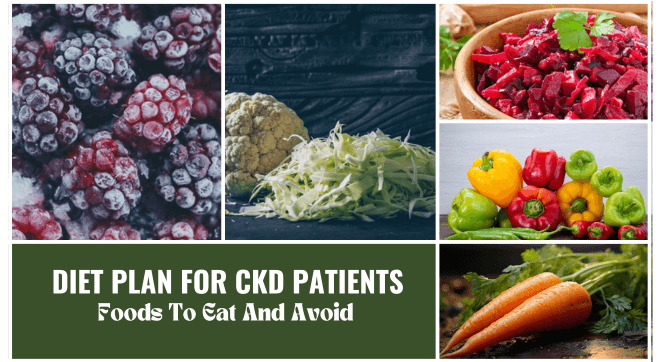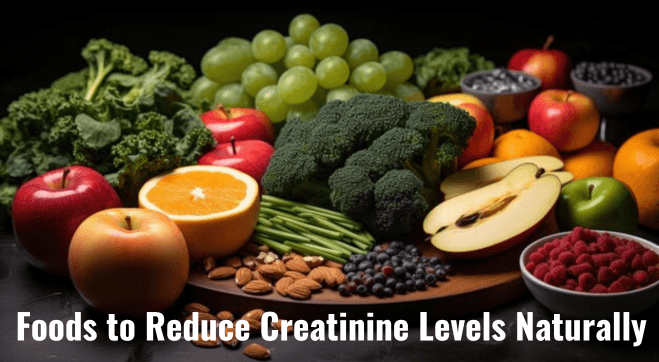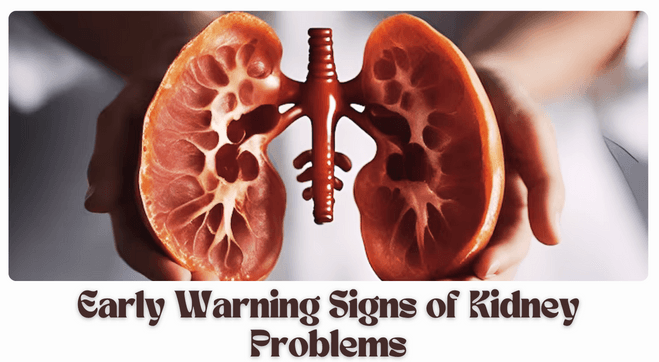Your kidneys are vital not only for your excretory health but also for your holistic well-being. Kidney functions may decline as a response to progressive ageing and an array of other health complications. Chronic kidney disease is referred to as the gradual loss of kidney functioning. The kidneys help filter excess fluids and waste from your body through urine. As a response to kidney function decline, waste and electrolytes may start to build up within your body, which may pose severe health concerns. Apart from medical measures, dietary modifications play a pivotal role in restricting the progression of kidney damage.
Can Dietary Changes Help With Chronic Kidney Disease?
If the kidneys are not working as they should, CKD patients are usually put on a specific diet. But does a specific diet for CKD patients really work? Yes, it can. Your doctor may ask you to cut down your intake of specific foods, like sodium and cola, to help minimise the symptoms of CKD.
What Are The Best Foods For Chronic Kidney Disease?
Dietary restrictions for people with chronic kidney disease can vary based on how damaged the kidneys are. For instance, the diet for CKD Stage 4 patients is usually different from the diet for CKD stage 2 patients. Similarly, a stage 3 kidney disease diet may look different than a stage 1 kidney disease diet.
That said, there are some foods that can help improve the functioning of the kidneys.
What Fruits Are Good For The Kidney?
A few fruits that you can include as part of your diet for chronic kidney disease are as follows:
- Blueberries: Blueberries are one of the best fruits for CKD patients. They may protect 1 against diseases like diabetes, cardiovascular issues, etc. They’re also low in potassium, sodium, and phosphorus.
- Red grapes: Red grapes are good for kidney patients as they are an incredible source of antioxidants that can help reduce 2 inflammation, so it’s often prescribed to CKD patients. It also contains less potassium.
- Pineapple: Pineapple is a kidney-friendly food and makes for a sweet treat. It is low in potassium, phosphorus, and sodium, compared to other fruits like bananas, oranges, and kiwis. The fruit also contains bromelain, which can help lower inflammation 3.
- Cranberries: Cranberries contain antioxidants that can help lower the risk or prevent kidney infections and UTI infections by bringing down bacteria levels in urine.
What vegetables should be part of a diet for CKD patients?
A chronic kidney disease diet plan should include a good amount of nutrient-dense vegetables. Here’s a list of the best vegetables for CKD patients:
- Cauliflower: Cauliflower has many nutrients, including folate, vitamin K, and fibre. It also contains 4 anti-inflammatory compounds as well as antioxidants.
- Garlic: If you’re on a low-sodium diet, it’s likely you’ve been asked to cut down on your salt consumption. While there isn’t an exact substitute for salt, you can add flavour to your dishes by using garlic. Garlic is one of the best foods for kidney health because it contains vitamin B6 and manganese. It also contains 5 sulfur compounds that have anti-inflammatory properties.
- Cabbage: Cabbage is a cruciferous vegetable and provides ample minerals, vitamins, and antioxidant compounds. As such, it is one of the best foods to improve kidney function. A 2021 study 6, in fact, noted that red, green, and white cabbage could help reduce your risk of kidney damage and help prevent obesity and oxidative stress.
- Bell pepper: Bell pepper should be part of your chronic kidney disease diet because it contains high amounts of vitamins C and A as well as other antioxidants. However, it is fairly low in potassium. These nutrients can aid immune function, which is linked 7 to good kidney issues.
- Onions: Another food good for kidney health is onion. Like garlic, onion can also add a lot of flavour to your dishes. It’s also extremely nutritious because it has vitamins C and B and manganese, including folate. It also has prebiotic fibres 8.
- Arugula: A nutrient-dense green that has a low potassium content, arugula is a good option for CKD patients. It’s also fibre-rich, making it a good vegetable for high creatinine levels 9.
- Radish: Radish is low in potassium and contains other important nutrients like vitamin A and folate, both important for nutrition for chronic kidney disease.
- Turnips: Turnips are root vegetables that have high amounts of fibre, manganese, vitamin C, and vitamin B6. Given this, it is one of the best foods for chronic kidney disease.
- Carrots: Carrots are good for kidney patients. It is one of the better foods to eat with CKD is carrots because it has low potassium content.
- Beetroots: People always wonder if beet juice is bad for the kidneys. The answer is no. Rich in several bioactive chemicals like nitrate, betaine, and betalain, beetroot has demonstrated positive effects on chronic kidney disease (CKD) such as lowering blood pressure, reducing inflammation, and providing antioxidants by scavenging radical oxidative species.
What Are The Most Important Vitamins And Minerals In a Kidney-Friendly Diet?
While consuming a healthy diet for chronic kidney disease is important, you may also have to supplement with a few important vitamins and minerals that you’re not naturally getting in your diet. Here are the most important ones:
- B-complex vitamins: B-complex vitamins like B6, B12, and folic acid help prevent anaemia.
- Iron: If you are taking tablets to treat anaemia, you will likely also have to take iron supplements.
- Vitamin C: This helps keep your body healthy and helps heal bruises and wounds a lot faster.
- Vitamin D and calcium: Vitamin D and calcium are a must-have if you want to maintain healthy bones.
While these are important nutrients to include in a diet plan for CKD patients, you may be asked to restrict the following nutrients by your healthcare provider:
- Sodium
- Potassium
- Protein
- Phosphorus
What Foods To Avoid With Kidney Disease (CKD)?
When your kidneys are damaged and incapable to function properly, fluid can build up significantly and waste can begin accumulating in your blood. Thus, it is important in this case to avoid foods that may cause further damage to your body or increase fluid retention. Here’s a list of foods that are bad for your kidneys:
Fruits
- Bananas: Wondering if banana is good for kidney patients? The answer is, no. Bananas 11 have a high potassium content, making them one of the worst foods for patients with CKD.
- Oranges: Oranges are rich in vitamin C. However, they also have high amounts of potassium. Hence, if you’re following a CKD diet, it’s best to avoid it. Make sure to also avoid orange juice.
- Avocados: Although avocados are a healthy food, they have a high potassium content. Hence, it is one of the foods to avoid with kidney disease.
- Apricots: Another Food rich in vitamins and mineral , apricot is, unfortunately, also high in potassium. Hence, it is another high-potassium food to avoid with kidney disease.
- Dry fruits like Almonds, raisins, and prunes: Dry fruits for kidney patients are not advised since they have a high concentration of nutrients, including potassium. Some nuts are often considered to be good in a renal diet. But are almonds good for kidney patients? Is walnuts good for kidney patients? No, because they contain high phosphorus. Whereas peanuts and figs are considered good for kidney health. So always check with your doctor before any intake of dry fruits and nuts.
Vegetables
- Greens: Greens like spinach and Swiss chard have a lot of potassium, so you can avoid them.
- Tomatoes: Most people wonder if tomatoes are good for the kidneys. As it is a most commonly used vegetable. Tomatoes are another kidney food to avoid because they have a high level of potassium. But having them in moderation in your diet can help your body get essential nutrients. Consult with your doctor and dietitian.
- Sweet and regular potatoes: Potatoes and sweet potatoes have a lot of potassium. That said, they can be soaked to remove some of their potassium content. A study reported that soaking potatoes for up to 10 minutes in water can help reduce the potassium content by 20% 13. Still, it is best eaten in moderation.
yes in some cases. Beetroots are moderately high in both potassium and phosphorus, consumption should be minimised for patients on dialysis or with end-stage renal failure and patients with kidney stones.
Grains
- Whole Wheat Bread: If you have kidney disease, white bread is recommended as part of your diet for kidney failure. This is because whole wheat bread, while nutritious, has a high potassium and phosphorus content 10.
- Brown rice: Equivalent to whole wheat bread, brown rice has high amounts of potassium and phosphorus. Thus, it should not be on anyone’s chronic kidney disease diet food list.
Dairy
- Dairy: About milk products like cheese, paneer or curd for kidney patients advisable? The answer is no! Curd, cheese and paneer is not good for kidney patients. It is best if it’s avoided in the diet as it is high in fat. Dairy products usually are high-protein nutritious food, but they also contain both potassium and phosphorus, making them unfit for CKD patients.
Packaged / Processed foods
- Canned foods: Canned foods, like soups, are often purchased because they make a quick meal. However, they are high in sodium, so they should be avoided
- Soda: Soda is high in calories and has a lot of sugar. What’s more, dark-coloured soda, in particular, contains a lot of phosphorus in its additive form, which is absorbed by the body. This can affect kidney functioning and hence should be limited.
- Processed meats: Processed meats are usually heightened in salt 12 and hence should be avoided.
- Pickles and olives: Pickles and olives are usually preserved with large amounts of salt. Hence, it is best avoided if you’re on a renal diet.
- Instant meals: These are usually high in sodium and are hence best avoided.
- Chips: Chips and other salty snacks are among the CKD foods to avoid because they contain a lot of salt.
What Does a Sample Diet Plan For a CKD Patient Look Like?
Listed below is a sample CKD patient diet chart that you can consider tweaking to your preferences. We’ve made this chronic kidney disease diet plan for two days.
|
Day |
Breakfast |
Lunch |
Dinner |
|
Day 1 |
Egg white omelette with white bread |
White rice, chicken, and cauliflower stir-fry |
Fish and stir-fried cabbage |
|
Day 2 |
Buckwheat porridge |
White rice, fish curry, and mushroom stir-fry |
Salad made with bulgur grains and olive oil dressing |
This CKD breakfast, lunch, and dinner meal plan can be supplemented with healthy snacks.
How Else Can One Fight CKD?
Apart from following a healthy diet for chronic kidney disease, you can manage the severity of your condition by testing your blood glucose level and controlling it if you have diabetes, controlling your blood pressure, and taking medicines as prescribed.
Alongside lifestyle changes and medication, regular testing is essential to monitor kidney function and detect any changes early on. Two common testing options used to evaluate kidney function are kidney function test and Kidney Profile Tests.
Disclaimer
The information listed here is strictly for educational purposes and is not intended to offer personal medical advice. Do consult your physician for any questions you may have regarding a medical condition. It’s not advised to disregard professional medical advice or delay in seeking it because of any information listed here. The Nutrition Source does not recommend or endorse any products.
Sources
Ref Links:
- Recent Research on the Health Benefits of Blueberries and Their Anthocyanins- NLM
- Flavonoids as Potential Anti-Inflammatory Molecules- NLM
- Potential role of bromelain in clinical and therapeutic applications- NLM
- Variation in the Accumulation of Phytochemicals – NLM
- Immunomodulation and Anti-Inflammatory Effects of Garlic Compounds- NLM
- Cabbage (Brassica oleracea var. capitata)- PubMed
- The role of the immune system in kidney disease- NLM
- Health Effects and Sources of Prebiotic Dietary Fiber- NLM
- Foods with added fiber lower serum creatinine levels- PubMed
- Plant-based Whole-Grain Foods for Chronic Kidney Disease- NLM
- Bananas, raw- USDA Gov
- Salt Intake from Processed Meat Products- PubMed
- Soaking to Reduce Potassium and Phosphorus Content of Foods- PubMed










